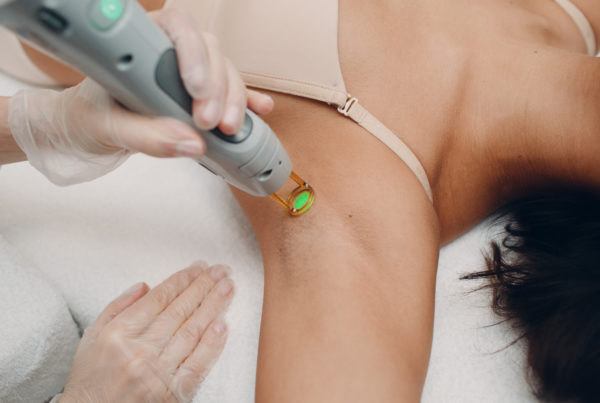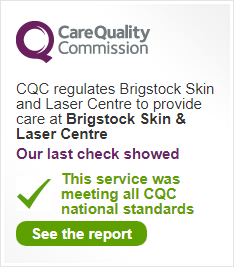Treating PCOS – your options
If you have been diagnosed with Poly-Cystic Ovaries Syndrome (PCOS) you may be surprised to know how many women actually have the condition. It is the most common hormone problem in women of reproductive age – as many as 1 in 10 women of reproductive age are thought to have the symptoms of PCOS. You have probably been diagnosed because you had some of the problems such as acne (which may have caused scarring), gaining weight easily, extra hair in unexpected places, irregular periods or difficulty in getting pregnant. All of these problems can be particularly distressing – however, there are many ways in which you can be helped.
So what is this hormonal imbalance and why do some women get it?
We don’t know why some women develop polycystic ovaries, the exact cause is not clear – it is likely to be a combination of factors including genetics. So, if your mum or sister has PCOS, you are more likely to have it too. Another factor is insulin.
Women with PCOS often have raised insulin levels. Insulin controls your blood sugar levels by taking glucose out of your bloodstream and into your cells when your blood sugar rises. In PCOS, the cells in the body are resistant to normal levels of insulin. This is called insulin resistance. Your body then produces more insulin as the cells need more and this raised level of insulin is thought to be the main reason why PCOS develops. As well as this, insulin acts on the ovaries making them produce testosterone. These higher levels of insulin and testosterone interfere with the normal development of the follicles in the ovaries. As a result, many follicles tend to develop but often do not develop fully. This causes problems with ovulation – hence, period problems and reduced fertility. The increased testosterone level in the blood causes excess hair growth on the body, spots and thinning of the scalp hair that some women with PCOS suffer with.
The raised insulin levels also cause a tendency to gain weight. Being overweight or obese is not the underlying cause of PCOS but, if you are overweight or obese, excess fat can make insulin resistance worse. This may then cause the level of insulin to rise even further. High levels of insulin then contribute to further weight gain producing a vicious cycle.
How do we treat PCOS?
Many of the medical treatments for PCOS, such as the contraceptive pill, treat the symptoms but not the underlying cause of PCOS. As we know that raised insulin levels are one of the triggers for PCOS, It is really important to do everything you can to try and lower your insulin levels. This is easier said than done though and many women with PCOS find changes to their diet and weight loss particularly difficult.
A lifestyle that includes healthy nutrition and daily exercise is the most important part of a PCOS treatment plan and you can help lower your insulin levels by eating less starchy foods and sugars, and more foods that are high in fiber and low in refined carbohydrates such as flour or white sugar. These low GI foods do not raise your blood sugar or insulin as much as refined carbohydrates. Exercising is another way to improve your PCOS. Exercise decreases insulin resistance. Fitting in some exercise each day is recommended, any amount of exercise you do will help manage your PCOS. There are some great phone apps that measure your activity during the day and others that measure your calorie and carbohydrate intake and can be really motivating. There are quite a few apps that have been created for women with PCOS, which incorporate all of the above.
Metformin is a medication often prescribed for women with PCOS particularly if they are overweight. This is a medication that is commonly used in diabetes – a condition where there are also issues with blood sugar, insulin and insulin resistance. One of the great things about this medication is that it actually makes your body more sensitive to insulin and can help you lose weight, start ovulating and reduce hair growth. This is great as it is treating the underlying cause of PCOS and not just the symptoms.
How to treat excess hair growth
This can be the most distressing symptom for many women with PCOS. Many women with PCOS spend a lot of time and money on hair removal including waxing, plucking, bleaching and shaving. These can all cause their own issues such as pain, ingrowing hairs and scarring and can be very time consuming.
There are quite a few different drugs that can be used to reduce hair growth and in the UK, ones that are commonly used include the contraceptive pill e.g dianette, spironolactone – a water tablet that also reduces hair growth, Vaniqa – a cream that reduces hair growth (and that can be used in combination with laser treatment). These can be helpful and can reduce hair growth but do have side effects. Because of this some women are not keen on taking medication long term or are not able to take the medication for some other reason. Once stopped the effects of the medication can also wear off and again, these do not treat the underlying cause. As discussed earlier, metformin also helps reduce hair growth.
Permanent hair reduction using lasers or IPL can be a great way of reducing hair growth. In many, women hair growth can be reduced permanently. Some women with PCOS may require more sessions than someone without PCOS, as a result of the hormonal issues driving your hair growth.
Because of this Brigstock Skin and Laser Centre offer a reduced rates for women with PCOS who choose our long term maintenance program. At the centre our highly qualified laser technicians will help you decide on the best laser machine to use for your skin type and hair growth. We are lucky to be one of the few clinics in London to have the fantastic Soprano Laser hair removal machine. With it, we are able to treat very dark skin with the added benefit of the treatment being virtually pain free. As a medical establishment we are also able to treat under 18s, something that most high street laser clinics are unable to do. This is a service that we are really pleased to be able to provide as excess hair growth during the teen years can be particularly distressing.
Acne scarring can also be a bothersome issue in women with PCOS. The range of treatments we provide include a review with our doctors for acne medication, scar reduction with dermaroller or skin peels and improvement of dark acne scars with the Obagi range of products.
With PCOS there is no one size fits all approach. Improving symptoms means looking at each woman and tailoring treatment accordingly. Our highly skilled and knowledgeable team are here to provide you with all the help you need!





